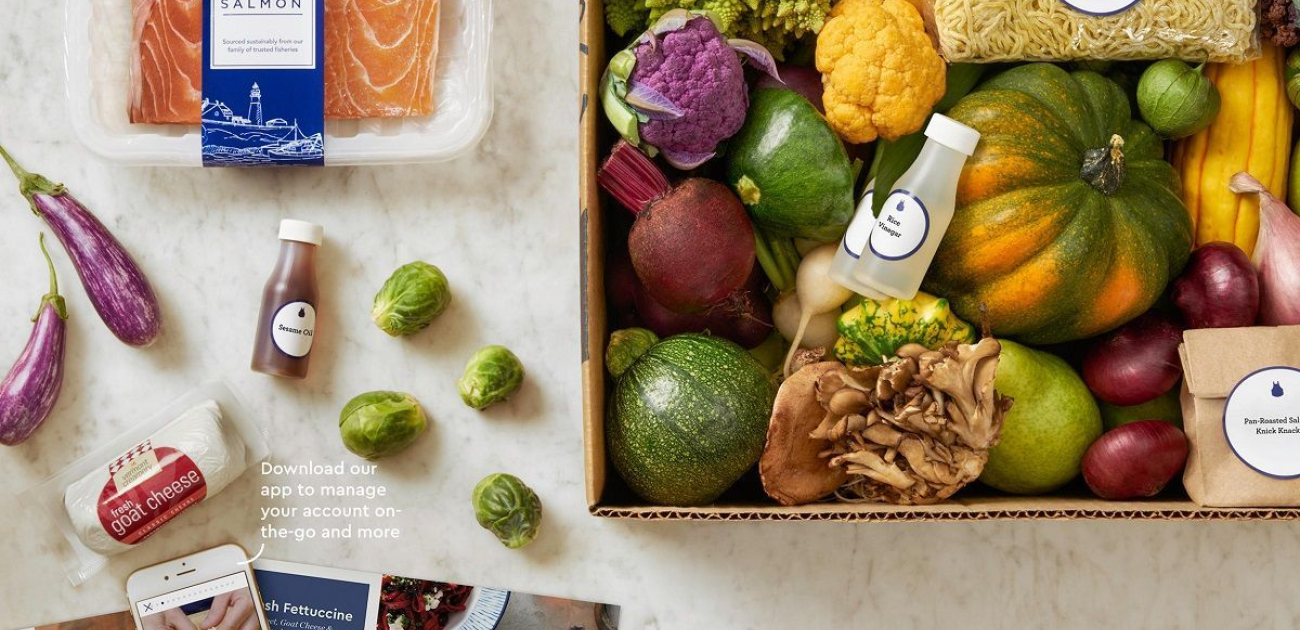How Grocery Stores Are Starting to Cash in on the Blue Apron Trend
Boxed meal delivery services like Blue Apron and Plated have steadily risen in popularity since they entered the market in 2012. Meal kit delivery services offer consumers a no-hassle way to cook meals at home, without having to find recipes, plan meals, or go grocery shopping. Instead, each week (meal delivery services are generally subscription-based, so you sign on for a shipment every week) a box arrives at your doorstep, filled with the exact number of ingredients needed to cook a few meals for the week (typically 3-5 dinners) with step-by-step recipe instructions. The market has become so segmented that companies now cater to every kind of customer from vegans (Purple Carrot), to locavores (Just Add Cooking), to families (Hello Fresh’s Family Box).
Meal kits are a multi-billion per year business that is poised to eat into traditional retail food services, including both grocery and restaurants. Meal kits are projected to rise to about $3 to $5 billion in market share in the next 10 years. The rise of meal kits signals a shift in how consumers want to provide meals for themselves and their families. Americans are looking for an easy and quick way to cook nutritious meals – particularly dinners – at home. We are not just making our family recipes, but are increasingly inspired by television cooking shows and gourmet restaurants, and are looking for creative, but manageable, recipes to make at home.
Admittedly, meal kits are a small silver of the overall $1.46 trillion Americans spend annually on food and beverages in grocery stores and other retailers. Additionally, meal kits have their own drawbacks, including the perceived waste of shipping and packaging materials. Meal kits also suffer from a major retention problem as research shows that only 50% of customers signup after the first week, and 90% of customers leave meal kit subscriptions within six months.
In light of these challenges, grocery stores have a great opportunity to capitalize on the meal kit business.
Grocery Stores’ Meal Prep Offerings
Whole Foods has recently partnered with Purple Carrot to offer plant-based meal kits in its Dedham, Massachusetts store, with plans to expand the partnership. The in-store meal boxes are cross promoted, so that if a customer makes a favorite meal, all the ingredients are easily available for purchase in-store to recreate it.
Grocery stores can also offer meal kits for delivery, through existing delivery services such as Instacart and Peapod, which provide all the benefits of a meal kit without the annoyance of a subscription. Customers can simply shop at home online, order one or more meal kits, and have those delivered to their doorstep within an hour or two, and with the ability to add other grocery staples.
Additionally, Boston-area Roche Bros. is pushing the technology envelope through its partnership with Popcart. Popcart is a plug-in to your internet browser that seamlessly turns a recipe into a shopping list. With the click of a button, you can go from viewing a recipe online to having an online shopping cart filled with the ingredients required to make the meal, that you can then either have delivered to your house or you can pick up at one of four area Roche Bros. stores.
In the new era of grocery delivery and the desire to make cooking at home as easy as possible, grocery stores are perfectly positioned to both push back at and improve the meal kit business model as part of their overall growth strategy.
Do you want more information?
 Alana Rusin
Alana RusinHi! I'm Alana Rusin. I have been a practicing attorney in Boston for the past 10 years and I live in Fort Point with my husband and two kiddos, Lucy (6) and Liam (4).
